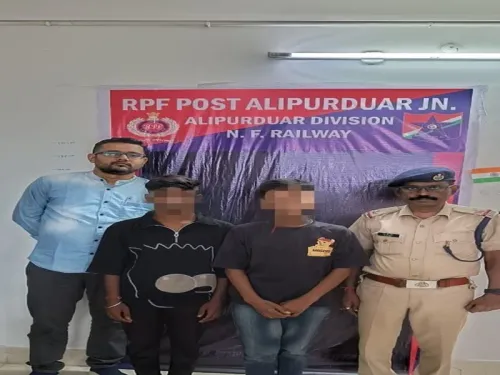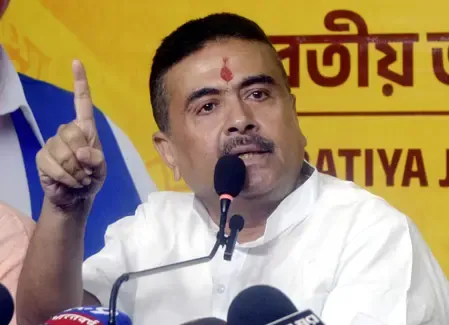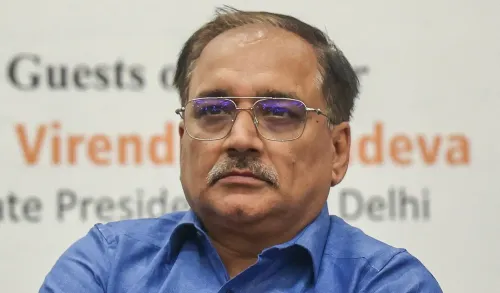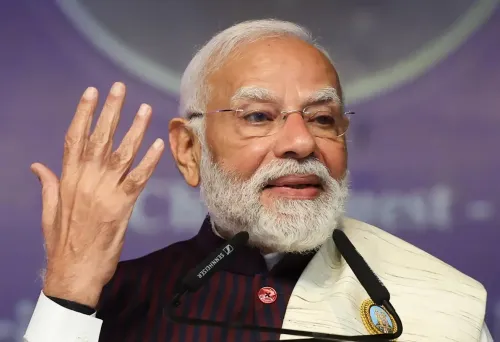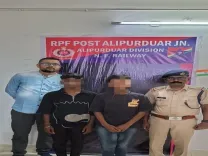PM Modi Observes the Launch of New Criminal Legislation in Chandigarh
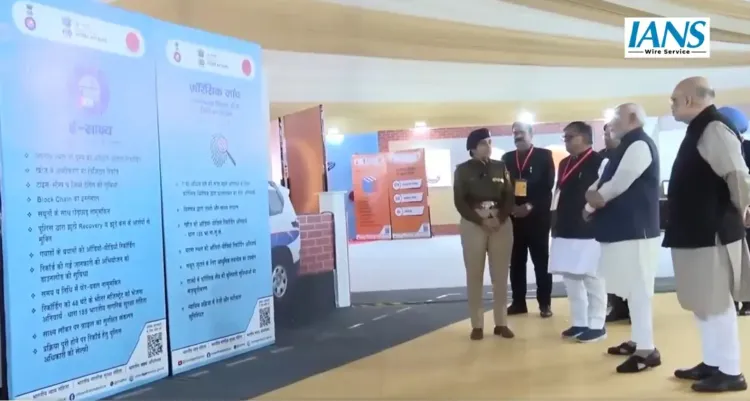
Chandigarh, Dec 3 (NationPress) On Tuesday, Prime Minister Narendra Modi engaged with officials and examined an exhibition highlighting the full execution of the new criminal laws in Chandigarh, the joint capital of Punjab and Haryana. He officially announced the nationwide implementation of three groundbreaking criminal laws.
Accompanied by Union Home Minister Amit Shah, PM Modi received updates from Senior Superintendent of Police (SSP) Kanwardeep Kaur regarding the execution of these transformative criminal laws, which have already seen the registration of over 900 first information reports (FIRs) and four convictions within the last five months.
These laws are designed to fundamentally reform India’s criminal justice system, emphasizing transparency, efficiency, and the ability to address contemporary challenges.
During his visit, PM Modi also explored an exhibition that simulated real-life crime scene investigations at the Punjab Engineering College, where a mock police station was established.
The exhibition, themed “Secure Society, Developed India: From Punishment to Justice”, featured eight stations that provided PM Modi with a practical insight into how law enforcement, forensic teams, judicial authorities, and prisons have become more efficient and technology-driven since the laws' implementation.
A particular crime scene was represented, depicting a distress call to the Police Control Room. At this scene, the e-Sakshya app was used to digitally document all evidence, including photos, videos, and timestamps, which were sent directly to the court. In this scenario, the forensic team was responsible for gathering vital evidence, while a “victim’s family member” identified the body.
Home Minister Shah was seen detailing to PM Modi the operational aspects of the new laws aimed at ensuring speedy justice, from the gathering of evidence at the crime scene to providing comfort to the victim’s family.
Chandigarh is the first city in the nation to achieve 100 percent execution of all three laws.
The three new criminal laws—the Bharatiya Nyaya Sanhita, the Bharatiya Nagarik Suraksha Sanhita, and the Bharatiya Sakshya Adhiniyam—have replaced the colonial-era Indian Penal Code, Code of Criminal Procedure, and Indian Evidence Act, respectively, coming into effect on July 1.
These significant reforms signify a historic transformation of the criminal justice system, introducing new frameworks to confront modern issues such as cybercrime and organized crime, while ensuring justice for victims of various offenses.
The local police also presented the functionalities of applications such as e-Sakshya, Nyay Setu, Nyay Shruti, and e-summons, developed by the National Informatics Centre in collaboration with the National Crime Records Bureau.
Before traveling to Chandigarh, PM Modi shared on X, “Today marks a special day in our initiative to ensure swift justice for every Indian, while also liberating ourselves from colonial mindsets… I will join the program in Chandigarh to celebrate the successful implementation of the three new criminal laws… It brings immense joy that these laws are being enacted as we commemorate 75 years since our Constitution was adopted by the Constituent Assembly.”
The formulation of these three laws was inspired by the Prime Minister’s vision to eliminate colonial-era legislation that persisted post-Independence and to reform the judicial system by shifting the focus from punishment to true justice.

